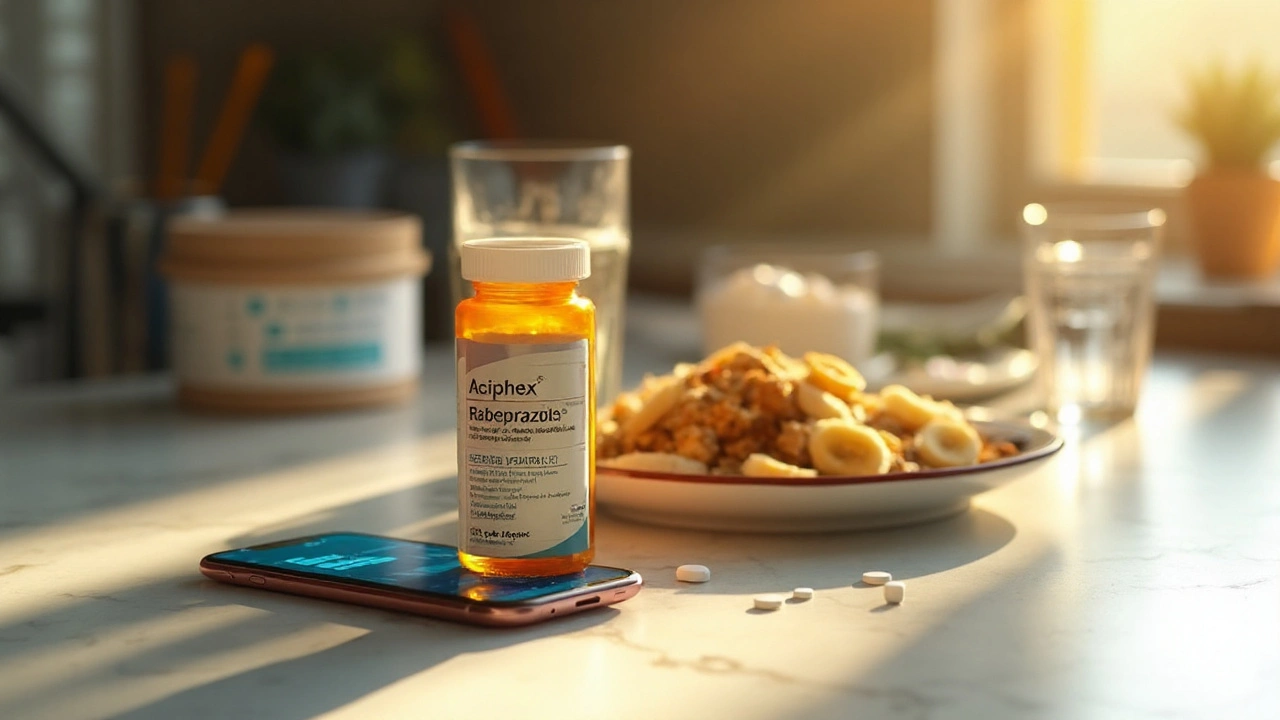Rabeprazole Made Simple: What It Does, How to Use It, and What to Watch For
If you’ve been told to take rabeprazole, you probably want to know why and how to get the best results. In short, rabeprazole is a prescription pill that cuts stomach acid, helping heal irritation and prevent pain. It belongs to the proton pump inhibitor (PPI) family, which means it blocks the final step of acid production. The result? Less burning, fewer ulcers, and smoother digestion for many people.
How to Take Rabeprazole Correctly
Take rabeprazole once a day, usually in the morning before breakfast. Swallow the tablet whole with a glass of water; don’t crush or chew it. If you miss a dose, take it as soon as you remember—unless it’s almost time for the next dose, then just skip the missed one. Consistency matters: the drug builds up in your system, so missing several days can reduce its effectiveness.
Typical adult dosing for gastro‑esophageal reflux disease (GERD) is 20 mg once daily for up to 14 days. For healing erosive esophagitis, doctors often start with 20 mg daily for 8 weeks, sometimes extending to 12 weeks if needed. If you have a duodenal ulcer, the usual plan is 20 mg daily for 4 weeks, while a gastric ulcer may require 20 mg daily for 8 weeks. Always follow the exact schedule your doctor gives you.
When to Talk to Your Doctor
Most people tolerate rabeprazole well, but a few side effects can pop up. The most common are headache, nausea, gas, and mild stomach cramps—usually temporary. More serious issues like severe diarrhea, unexplained vomiting, or rash deserve a call to your doctor right away.
Long‑term use (beyond a year) has been linked to low magnesium levels, vitamin B12 deficiency, and a slightly higher risk of bone fractures. If you’re on rabeprazole for an extended period, ask your doctor about periodic blood tests to keep an eye on these nutrients.
Rabeprazole can interact with several other drugs. It may reduce the effectiveness of clopidogrel, a blood‑thinser, and can increase levels of certain antifungal or HIV medicines. Always list every medication, supplement, and over‑the‑counter product you take before starting rabeprazole.
Pregnant or breastfeeding? Current data suggest rabeprazole is low risk, but you should still discuss it with your healthcare provider. If you have liver disease, kidney issues, or a history of allergic reactions to other PPIs, let your doctor know—dose adjustments might be needed.
Bottom line: rabeprazole can be a game‑changer for acid‑related problems when you use it as directed, watch for side effects, and keep an open line with your doctor. With the right approach, you’ll likely feel relief faster and stay symptom‑free longer.

Aciphex (Rabeprazole) Guide 2025: Uses, Dosage, Side Effects, and Alternatives
Clear 2025 guide to Aciphex (rabeprazole): what it treats, how to take it, side effects, interactions, and alternatives-plus NZ/US cost notes and pro tips.
Sep 1 2025




